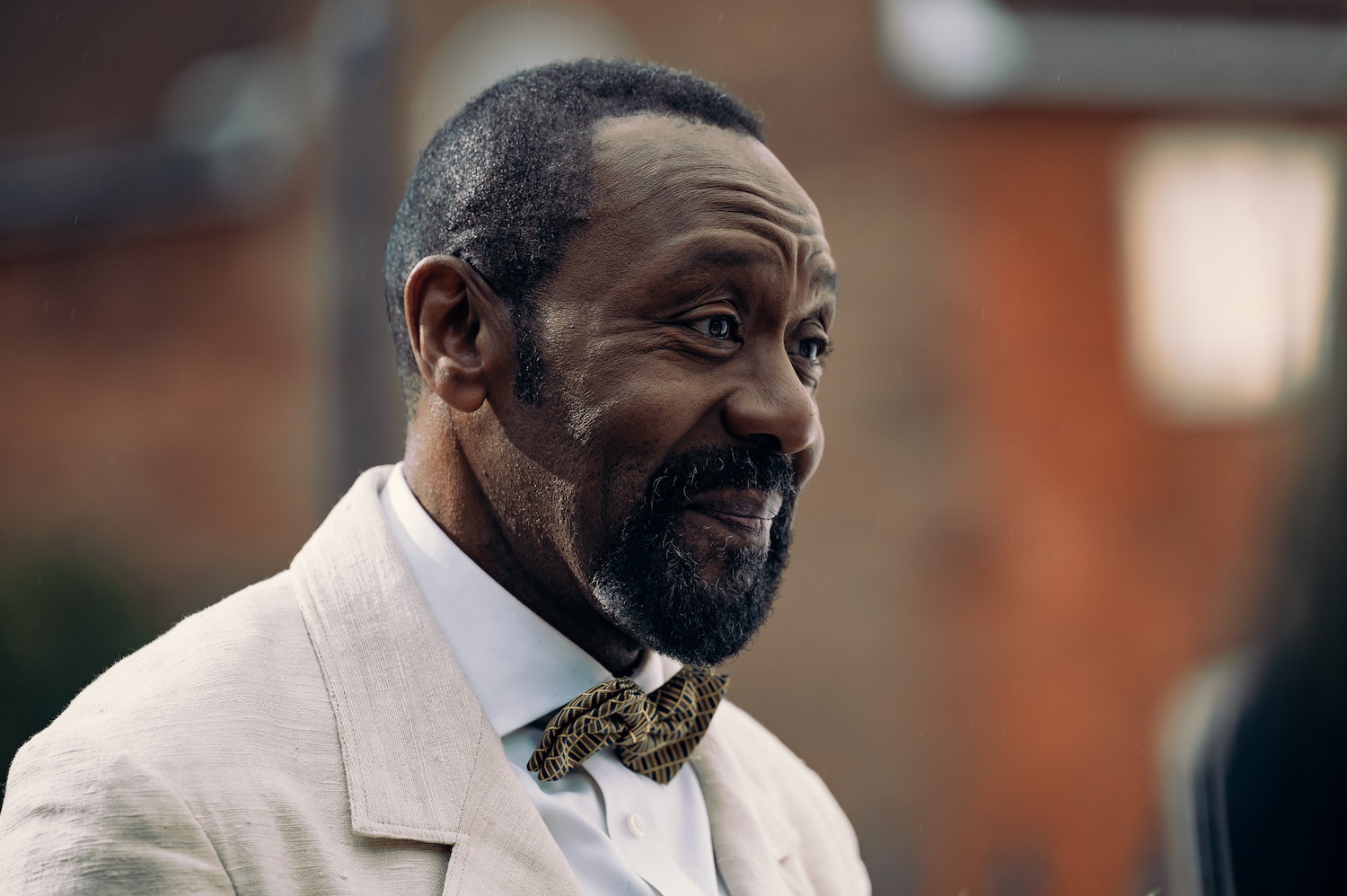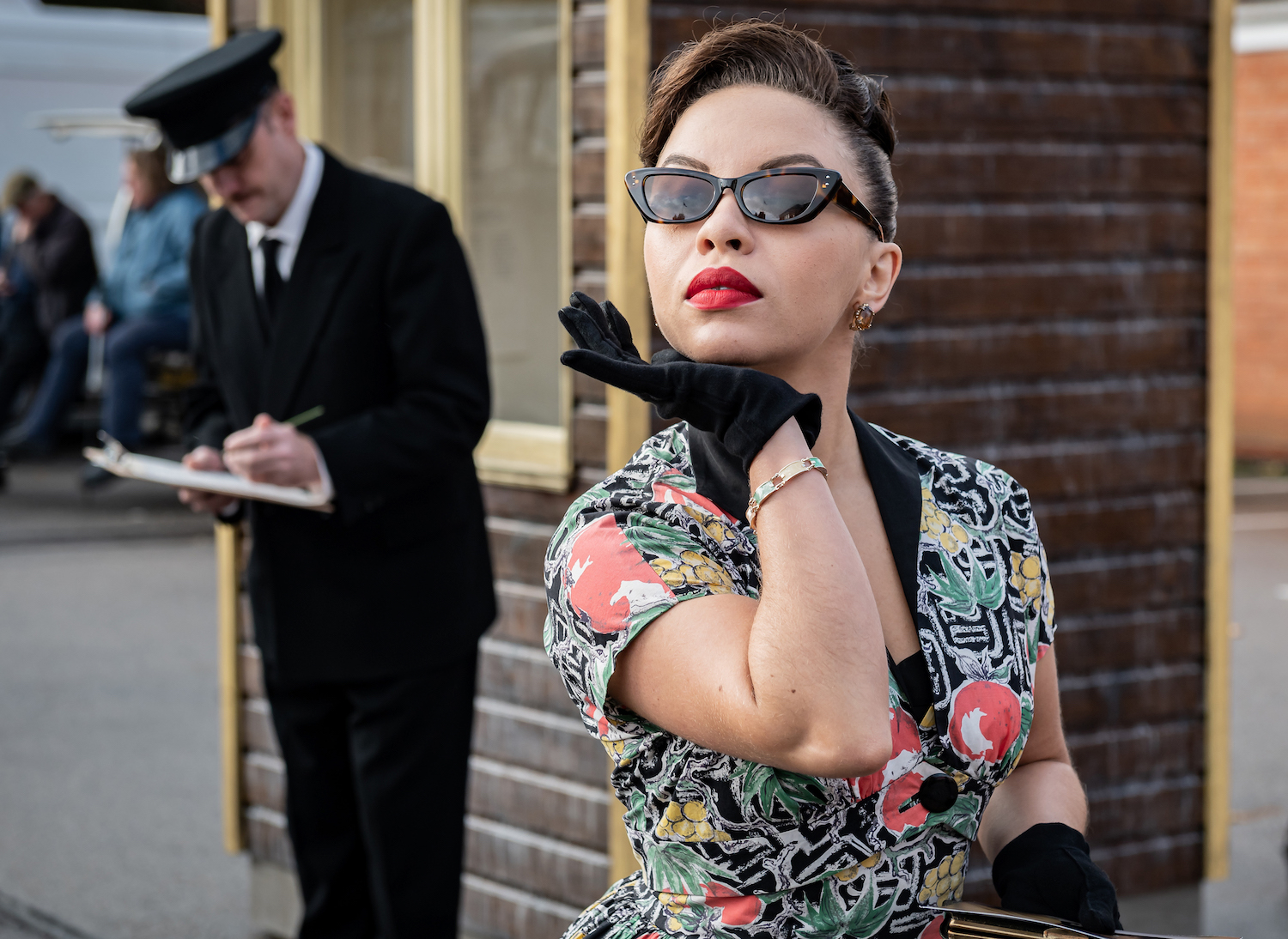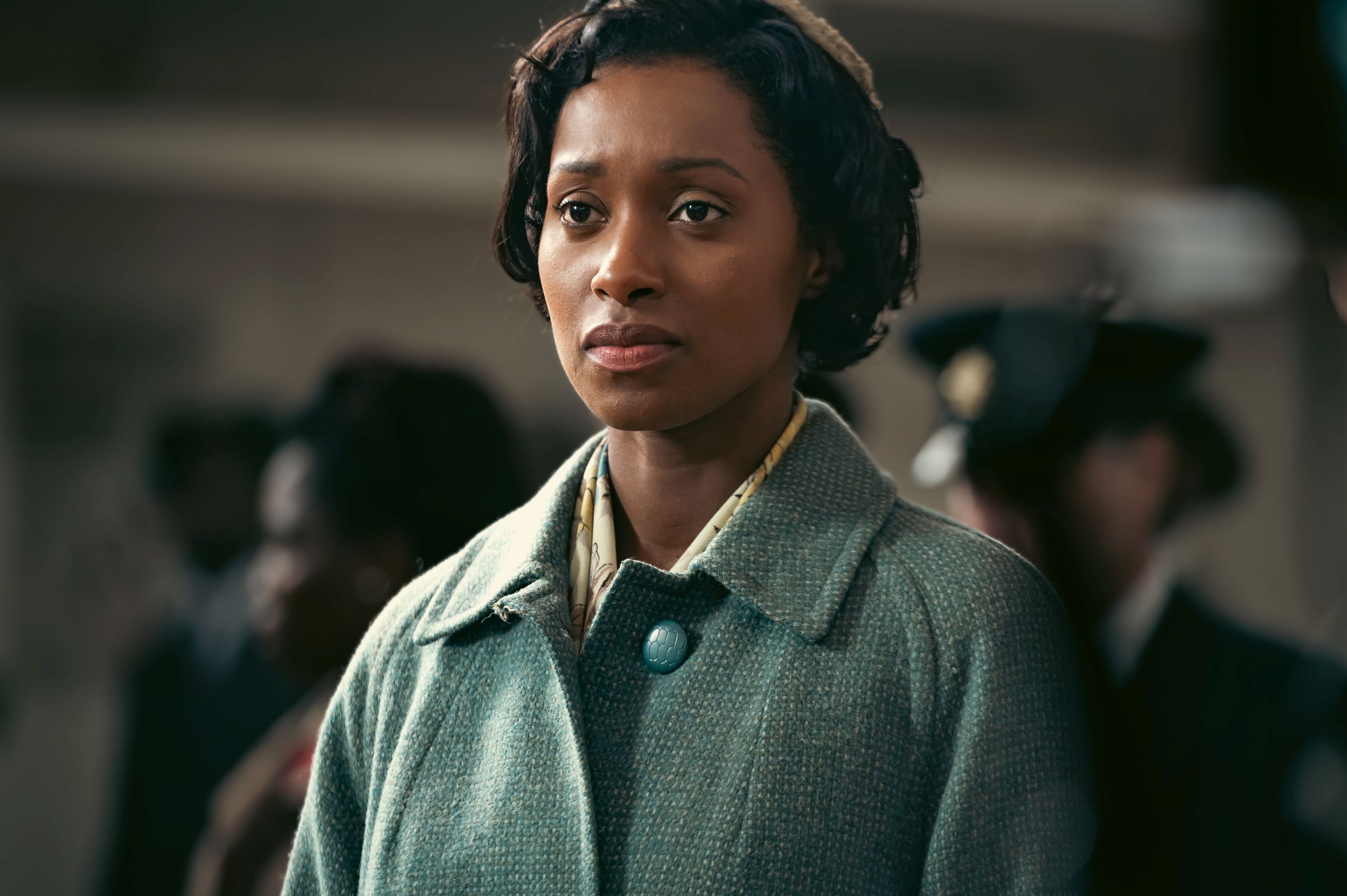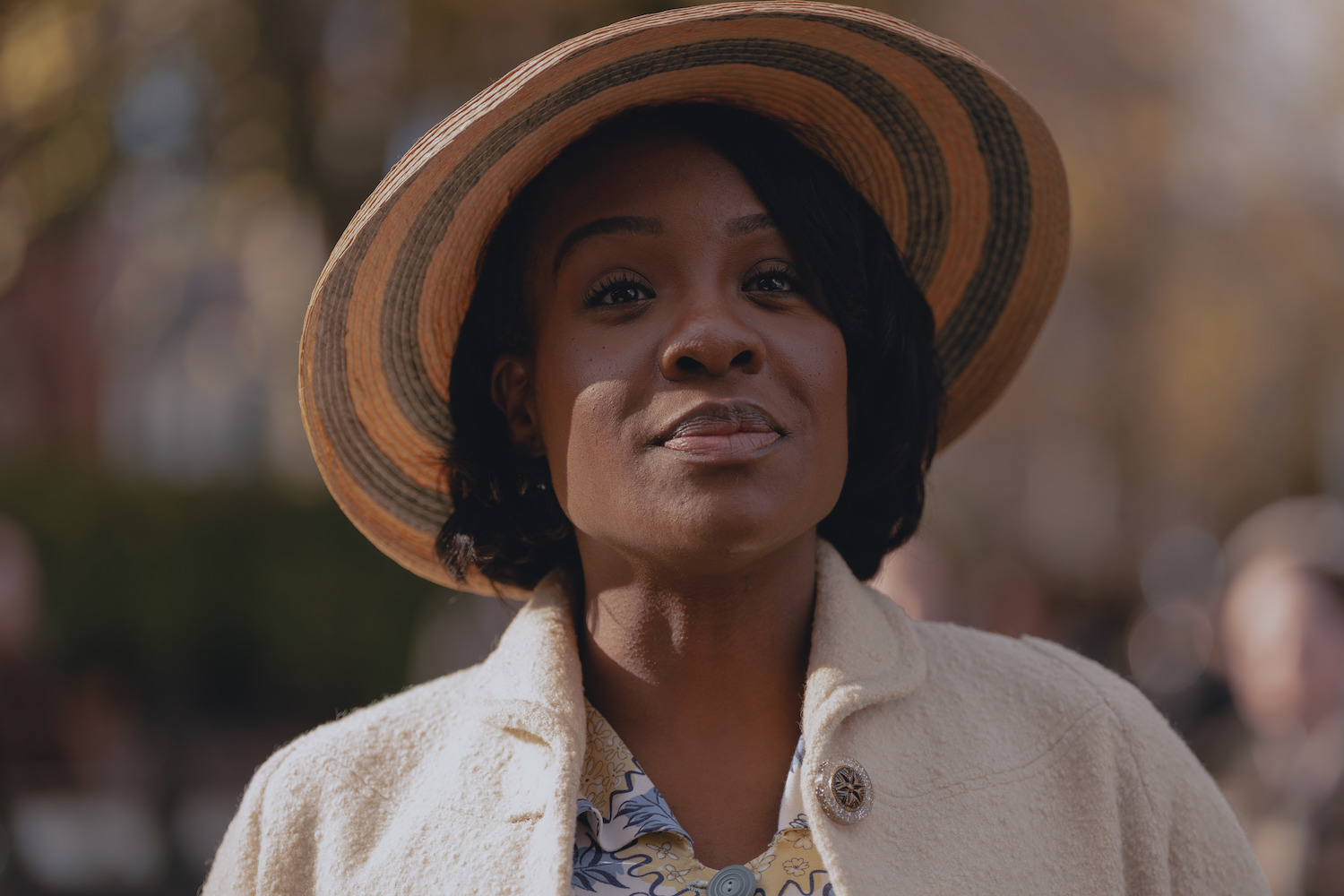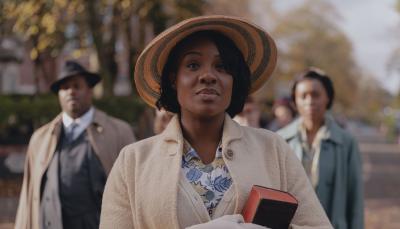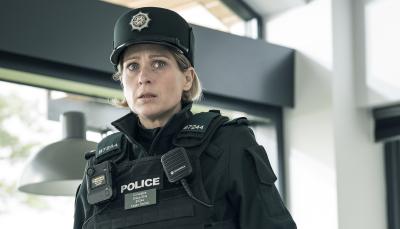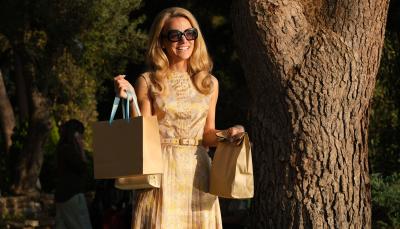The Stars of 'Three Little Birds' On the Universal Nature of This Post-Windrush Story
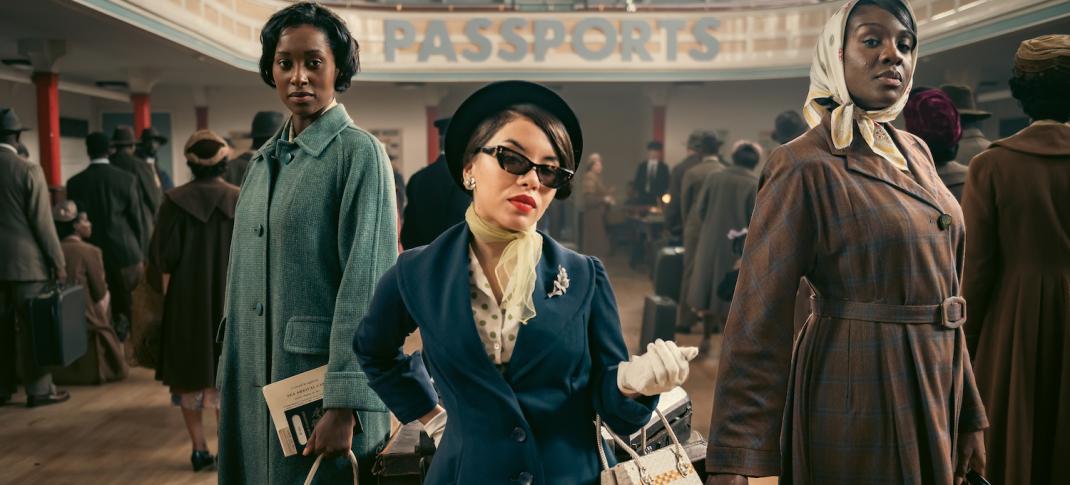
Rochelle Neil, Saffron Coomber, and Yasmin Belo in "Three Little Birds"
(Photo: Courtesy of BritBox)
BritBox’s Three Little Birds is not always an easy drama to watch. But it’s an important one. The 1950s-set period project hails from Black British comedian Sir Lenny Henry, who based the series on the stories of his mother and those like her who traveled to the U.K. as part of the Windrush generation. Workshopped with the help of Doctor Who’s Russell T. Davies, the series features “a warmth and heart that honors the thankless work of the Caribbean men and women performed who toiled to raise families and gain financial autonomy.”
In 1948, the British Nationality Act gave people from Commonwealth countries the right to live and work in Britain, as workers were needed to help counteract post-World War II labor shortages. The “Windrush generation” generally refers to those from the Caribbean — Jamaica, Trinidad, and Barbados, among other places — who traveled to work in Britain hoping for a new life and better opportunities for themselves. Many became manual workers, domestic helpers, drivers, and nurses in the newly established National Health Service. Named after one of the most well-known ships that facilitated these crossings (HMT Empire Windrush), this mass migration movement had a lasting effect on British culture and politics, yet it is infrequently explored in popular media, and it’s very likely many American viewers are unaware of this particular slice of history.
Three Little Birds aims to change all that. The series follows the story of three women — Leah, Hosanna, and Chantrelle — who arrive in England only to discover that the bright future they were promised on the other side of the ocean carries a bit more tarnish than they expected. The women face verbal and physical abuse, sexual harassment, professional inequalities, racism, and more. Yet the strength of the communities they build with one another helps them survive and learn to thrive in an unfamiliar and occasionally hostile land.
We spoke with Henry and Three Little Birds stars Rochelle Neil, Yazmin Belo, and Saffron Coomber about the universal nature of the series’ story, the power of focusing on an often underrepresented slice of British history, building their onscreen bonds together, and more.
This interview has been edited and condensed for clarity.
Telly Visions: I think many Americans are probably not super familiar with the story of the Windrush Generation and everything that happened after the Empire Windrush came over. Tell me why you think it’s important to tell this specific story and to tell it in such a universal way.
Sir Lenny Henry: I think we hope the story resonates because there are all these shows—Avalon, Fresh Off the Boat—about immigrants moving from a place of privation and hardship and coming to a place where they get the opportunity to work in a different place, a different future. Perhaps a better future.
My family had British passports because Jamaica was a colony. We’re only here because they were there. And they arrived in this country to see signs that said “No Blacks, no Irish, no dogs” in all the windows. To be racially abused, and sexually abused, and oppressed by patriarchy. They had to work hard to overcome that stuff. And the way you do that is to form clusters, you form new families, a new support network. That’s what this series is about. And I hope we do it with a sense of joy and optimism.
Rochelle Neil: The show humanizes a generation and gives voice to a generation that historically has remained very voiceless. I can’t think of another TV show in the U.K. with three Black female leads in a prime time slot. So what we’re doing feels very groundbreaking, and it seems to start conversations in households. Not just in terms of the history, but it’s also humanizing people—like people are speaking to their grandparents like, hey, what was it like when you fell in love in the 50s? And what was it like working in a factory?
Henry: There are jokes, but there’s also romance and tragedy, and people get to kiss, which I always think is a nice thing. But I also wanted to have..you don’t overcome these big things—the fight against slavery, marching on Washington, women getting the vote—without a sense of humor. So I wanted to make sure there was a seam of humor running throughout the whole series so that people knew the humor was one of the things that got them through.
Neil: The thing with immigration is that everyone’s lives change. For the indigenous Brits, the Jamaicans or Caribbean people coming over, the food everyone was exposed to, the music everyone was exposed to, the culture… everyone’s lives changed, I think, for the better. I’m also a proud Brit, so… you’re welcome!
Henry: You can thank us for the seasoning later.
Neil: Exactly!
Henry: We brought culture. We brought seasoning. We brought flavor. We brought music, literature, and poetry; we contributed so much to this country. It’s worth celebrating. I wanted to do a series that wasn’t just about Black trauma. It was also about the success story of overcoming all these hardships, trials and tribulations. And yes, it’s the story of my parents and my family. But it’s also lots of people’s stories. You know—Rochelle, talk about your grandmother.
Neil: My grandmother wrote a memoir. I have a first-hand account of her life in Jamaica, meeting my granddad and having my dad and his siblings. She moved over here and then sent for them the same way that my character Leah did with her kids. On my mom’s side, my grandmother came over with her sister and her best friend. It’s uncanny how similar it all is. When I read the script, I was convinced Lenny had been following us around. It’s so many people’s stories.
TV: Though it’s technically not my history, Three Little Birds still felt relatable.
Belo: That was something that we wanted to put across.
Coomber: I love this project because, in Britain, you can count on one hand how many stories there have been about this period, about that journey and its legacy. I’m glad it feels like a relatable story because, ultimately, it is just a human story. Everyone knows that feeling, has personal histories of that journey within their own families; whether it’s to escape conflict or pursue a better life, everyone knows what it is to dream about more for themselves and their families. Sometimes, certain people can find it difficult to connect with people who don’t look like them and forget that we’re all humans on this planet. We share so much, and ultimately, we do share love, communion, community, and struggle. This is such a heart-led piece, and I’m glad that that human element has been able to traverse experiences.
Belo: I remember speaking to one of my Aunties who wouldn’t necessarily be part of the Windrush generation; she’s more familiar with the story because of age, and she’s based in Jamaica. She turned to me and said, “You’re going to tell the story about Windrush? But why?” And there was this curiousness, like why are we reliving something that we’ve gotten through, and now we have children that can do stuff that we didn’t?
That made me very sad, but it also made me so proud that I could tell their stories and highlight how resilient and wonderful and strong and vulnerable they were. They established a life in a country that a.) wasn’t welcoming and b.) was a dramatic shift from what they would know. It was remarkable, and I was happy to be part of this story.
TV: The show does a great job of finding the light amidst some very dark circumstances and subject matter. I think your point about not having to tell a story about Black trauma is critical because, in America, that’s a lot of what we see.
Henry: In Britain, we were never taught this. We’ve just started talking about the Windrush thing and Three Little Birds — just a note so it doesn’t get twisted: Three Little Birds is a post-Windrush story. It happened ten years after the Windrush arrived. But the problems persisted. There was still suspicion. There was still objection to Black people being in the workplace. Women were still being objectified; men were still being objectified. There was a lot to learn. We’re still learning — look at our Prime Minister the other day standing on a platform at Westminster with a sign that said, “Stop the boats.” Immigration is still an issue.
To me, to learn about why people are reacting to immigrants coming into the country now, it’s essential to go back and learn how Britain isn’t just an indigenous population, but it’s made up of many people. It’s important to remember what their reaction was when these people arrived. It’s always important to understand how disruptive it is, at first, for a whole bunch of new people to arrive in a country. It’s a disruption. But immigration doesn’t just happen to the indigenous population; it happens to us, too.
TV: Your relationships feel so real and warm whenever you’re onscreen together. How did you go about building those bonds together? Because even though they have different storylines at various points that don’t always intersect, your characters still feel very close.
Belo: Many of my relationships were formed off set; I lived about three seconds away from Saffron. Everyone was also just super supportive. There will be some scenes that I knew were coming up that I was a bit nervous about, so just having access to and being around the wealth of experience on set was helpful. This was my TV debut —
TV: I would never have guessed that, by the way.
Coomber: You would never, right? Never.
Belo: That’s kind. But being around such seasoned actors, there was no time for self-doubt. If there were, it would only be for like seven seconds; I was too concerned about what I was doing in the scene. But knowing that I had this community that was rooting for me…it was a passion project, but also we were a family, holistically, down to the women that did our hair and make-up, the lighting team, the entire set.
Coomber: It’s not always a given that the people you work with become your friends or relationships continue outside of work. But this project wasn't true with this set, this job, this project just wasn’t true. I know that I’ve made friendships that are gonna last a lifetime. To be able to work in such a way where we operate from a place of utmost respect and love for each other, but also utmost respect and love for the piece….so much can happen because you trust each other and you want what’s best for each other and each other’s characters. Magic can happen.
TV: What’s it like working with someone like Sir Lenny Henry and bringing a story that’s so personal to him to life? I know I’m asking you to embarrass him a bit, but even I’m starstruck just sitting here.
Neil: Sir Lenny Henry, close your ears! It was a joy. He was just so lovely. I didn’t know what to expect, [but] I thought, if I’m ever going to get through this role, I have to humanize him. He cannot be the icon that he is. We’re going to be friends, and we’re going to text, and I’m gonna send you pictures of my kid; otherwise, I cannot do it. I have to be able to tell you the truth. I have to be able to show you vulnerability and weakness. He was always so receptive, encouraging, and generous. He gave me a lot of space, energy, and freedom to go for it.
Coomber: It’s a dream come true. There have been so many moments…particularly last year when we went to the BAFTAs before Three Little Birds came out; Lenny was like, “Hey, these ladies, keep an eye out for them.” I remember standing next to him and listening to him speak as he was getting interviewed. I was like, I can’t believe this is my life. I can’t believe I’m standing here with him and these beautiful women discussing this project. That means the world to me. I’m living my dream, and I am so grateful for that.
Belo: So exactly what I wanted to say. Exactly.
Henry: I think it’s important when you’re making work like this — at least I realized it was important to me — even going on to the set, which was quite a diverse set, which is a rarity in this country, and you had people saying this is my mom’s story. This is my dad’s story. Yeah, this is exactly what it was like. I can only tell my truth, but it was so joyous to realize that it resonated with so many people, including those who were part of it, and I hope it resonates with people who watch it in America, too. It was cooked with a lot of love.
The first three episodes of Three Little Birds are currently streaming on BritBox, with the final installments set to premiere on Friday, February 8, 2024.

